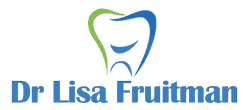Here are My 5 Most Frequently Asked Questions
When should I start brushing my baby's teeth?
You should begin brushing your child's teeth (or tooth, haha) as soon as it appears. But even before that, get into the habit of wiping your baby's gums with a clean damp cloth before bed after their last feed.
This gets your baby used to having your fingers in their mouths and establishes a good bedtime routine. You may opt for using a soft cloth or gauze instead of a toothbrush even when the first tooth appears. Be cautious, as your child's gums may be sensitive.
Do not use any toothpaste with fluoride at this age. Non-fluoridated training toothpastes are available at your local drugstore for you to use, but they aren't necessary.
When do I bring my child in for their first visit?
The Canadian Dental Association recommends children see a dentist within six months of their first tooth appearing or by their first birthday.
One of the top reasons to take your infant for a dental exam is to review proper at home care to ensure you are doing your homework. That is to say, that you know the best way to care for your infant or toddlers teeth and gums.
A first tooth erupts on the average at 6months of age, and it usually appears on the bottom first, right in the center of the gums. But there is a big range of normal for this milestone.
One of my daughters did not get her first tooth until age 15 months. While that is definitely more on the late side, you can bet that I was already cleaning her mouth and gum pads with a wet facecloth long before the arrival of your baby's first tooth.
Routine is such an important part of ensuring a positive experience in taking care of oral hygiene. Once babies and infants are used to having their gums wiped after feeds, especially before nighttime, they will be far less resistant to the introduction of a toothbrush to clean their primary teeth once they arrive.
A wet cloth or baby finger brush will get rid of excess food debris and plaque.
Is it bad to put my child to bed with a bottle?
It is highly discouraged to put your child to bed with a bottle at any age, even if no teeth are present yet. Going to bed with a bottle of milk, formula or juice will greatly increase your child's chance of developing "Early Childhood Tooth Decay".
Prolonged exposure of baby teeth to formula or milk can cause cavities just like a sugar snack/drink. Water is best to substitute in a bottle if your baby needs it to soothe or try a pacifier.
When will we see our baby's first tooth?
Every child is different, but the average age for a child's first tooth to appear is around six months. There is a large range here though…there are babies who may be born with teeth already present, or (like my daughter) they may be over a year old before their first tooth appears!
Do Baby Teeth Really Matter? Aren't They Just Going to Fall Out?
Baby teeth are very important to a child's oral development and should not be considered any less important than your child's permanent or adult teeth that will start erupting around age 6.
Here are some important reasons to preserve primary teeth.
- Baby teeth are important to speech development and proper tongue position when making certain sounds.
- Baby teeth keep a proper amount of space in a child's mouth for the succeeding adult tooth to erupt. Missing a baby tooth and not preserving that space before the adult tooth is ready to erupt may result in other baby teeth drifting into that open space, making it impossible for the adult tooth to erupt properly. The ultimate result may be an overly crowded dentition and expensive visit to your neighbourhood orthodontist for it to be corrected.
- Socially, prematurely missing front teeth at an early age due to dental extraction from a large cavity may impose a hardship on the child and lead to low self-esteem.


